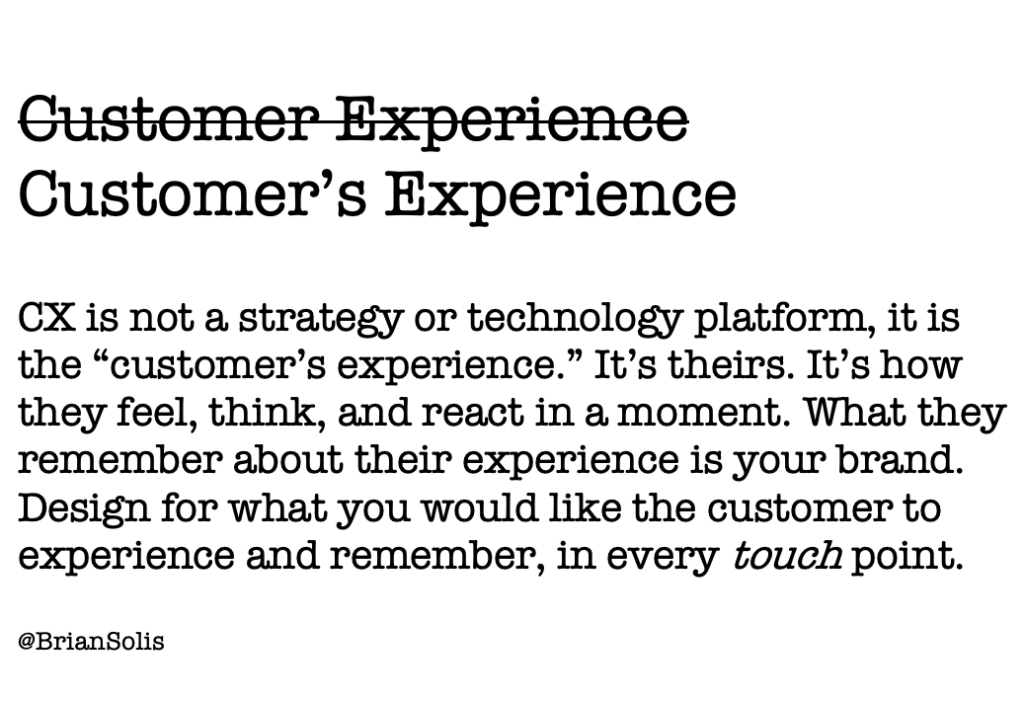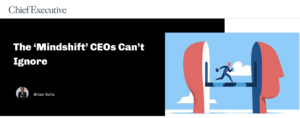
Ian Schneider, Unsplash
Customer experience is the new battleground for brands. How company’s deliver CX is either a competitive advantage or disadvantage.
But, CX is so much more than how we think and talk about it, how we plan for and imagine its future, and how we invest in and support it.
Perhaps it’s in how we frame it.
We tend to observe it as mission critical, but we organize around it through distributed strategies across the organization. We enable disparate versions of CX through highly capable, but disconnected technology platforms. We measure CX as if touch points were limited to transactions and only relegated to being fragmented and unconnected from one another. We invest in it as if it were a cost center and not as an investment in human and business outcomes.
Like customer service and support, CX is scaling because of the incredible technology before us, customer data, mobile, automation and machine learning, artificial intelligence, virtual and augmented reality, 5G, and more. But also like customer service and support, we’re scaling capabilities while scaling back humanness, compassion, and value-added engagement.
Words matter and like customer service and support, the use of the words customer experience is becoming mechanical and uttered without mindfulness.
Customer: The people who support our business.
Service: The acts of helping someone.
Support: The action of giving assistance to someone, to enable someone to do something.
Experience: The human reaction to a moment.
Each word means something personal that’s lost its spirit in business vernacular. If you think about each moment of service/support and experience, they’re sensitive to the needs and goals of someone. Brands, in these moments, are vulnerable or open to opportunity.
That’s the thing about all of this new and exciting technology. We can either scale further away from the humanity of important moments and touch points, or we can use them to make business more personal.
CX strategies and investments, in large part, are lacking true empathy, not buzzword empathy. As such, CX is without human-centered purpose and consciousness.
Without understanding it from the perspective of those who experience the journey we lay out for them, we will continue to miss the humanity in it all…especially in these time.
perhaps instead of “customer experience,” we should let our work be inspired by the “customer’s experience.” It’s theirs.
The experience is shaped by how they feel, think, and react in any moment.
What they remember about their experience is your brand.
So, design for what you would like the customer to experience and remember, in every touch point.
That’s genuine CX…imagining the customer’s experience to mean something more profound and memorable.


Brian Solis | Author, Keynote Speaker, Futurist
Brian Solis is world-renowned digital analyst, anthropologist and futurist. He is also a sought-after keynote speaker and an 8x best-selling author. In his new book, Lifescale: How to live a more creative, productive and happy life, Brian tackles the struggles of living in a world rife with constant digital distractions. His previous books, X: The Experience When Business Meets Design and What’s the Future of Business explore the future of customer and user experience design and modernizing customer engagement in the four moments of truth.
Invite him to speak at your next event or bring him in to your organization to inspire colleagues, executives and boards of directors.





Leave a Reply